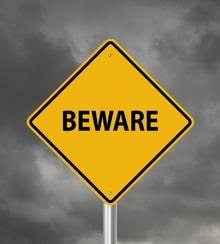Work-from-Home Scams
We've all seen ads in magazines and on the Internet inviting us to:
"Be part of one of America's Fastest Growing Industries!" or
"Earn thousands of dollars a month — from your home — Processing Medical Billing Claims."
These ads may sound good, especially if you can't work outside your home, but be careful. These schemes rarely deliver what they promise.
Many ads omit the fact that you may have to work many hours without pay. Or they don't disclose all the costs you have to pay. Most work-at-home schemes want you to spend
your own money to run newspaper ads; make copies; or buy the envelopes, paper, stamps and other supplies or equipment you need to do the job. They may also make you pay
for instructions or tutorial software. People who've answered these ads have lost thousands of dollars, in addition to their time and energy.
Classic work-at-home schemes
Medical billing
Ads for pre-packaged businesses — known as billing centers — are in newspapers, on television and on the Internet.
If you respond, you'll get a sales pitch that may sound something like this: There's "a crisis" in the health care system, due partly to the overwhelming task of
processing paper claims. The solution is electronic claims processing. Because only a small percentage of claims are transmitted electronically, the market for billing centers is wide open.
The promoter also may tell you that many doctors who process claims electronically want to outsource or contract out their billing services to save money. Promoters
promise that you can earn a substantial income working full or part time, providing services like billing, accounts receivable, electronic insurance claim processing
and practice management to doctors and dentists. They also may assure you that no experience is required, that they will provide clients eager to buy your services
or that their qualified salespeople will find clients for you.
The reality is that you will have to do the selling. These promoters rarely provide experienced sales staff or contacts within the medical community.
The promoter follows up by sending you materials that typically include a brochure, an application, sample diskettes, a contract (licensing agreement), a disclosure
document, and sometimes testimonial letters, videocassettes and reference lists. For your investment of $2,000 to $8,000, a promoter promises software, training and
technical support. And the company encourages you to call its references. Make sure you get many reference names from which to choose. If only one or two names are
given, they may be shills — people hired to give favorable testimonials. It's best to interview people in person, preferably where
the business operates, to reduce your risk of being misled by shills and also to get a better sense of how the business works.
Few consumers who purchase a medical billing business opportunity are able to find clients, start a business and generate revenues, let alone recover their investment
and earn a substantial income. Competition in the medical billing market is fierce and revolves around a number of large and well-established firms.
Envelope stuffing
Promoters usually advertise that, for a "small" fee, they will tell you how to earn money stuffing envelopes at home. Later — when it's too
late — you find out that the promoter never had any employment to offer. Instead, for your fee, you're likely to get a letter telling you to
place the same "envelope-stuffing" ad in newspapers or magazines or to send the ad to friends and relatives. The only way you'll earn money is if people respond to your work-at-home ad.
Assembly or craft work
These programs often require you to invest hundreds of dollars in equipment or supplies. Or you spend many hours producing goods for a company that has promised to buy
them. For example, you might have to buy a sewing or sign-making machine from the company, or materials to make items like aprons, baby shoes or plastic signs. However,
after you've purchased the supplies or equipment and performed the work, fraudulent operators don't pay you. In fact, many consumers have had companies refuse to pay for
their work because it didn't meet "quality standards."
Unfortunately, no work is ever "up to standard," leaving workers with relatively expensive equipment and supplies — and no income. To sell their
goods, these workers must find their own customers.
Questions you should ask
Legitimate work-at-home program sponsors should tell you — in writing — what's involved in the programs they are
selling. Here are some questions you might ask a promoter:
- What tasks will I have to perform? (Ask the program sponsor to list every step of the job.)
- Will I be paid a salary or will my pay be based on commission?
- Who will pay me?
- When will I get my first paycheck?
- What is the total cost of the work-at-home program, including supplies, equipment and membership fees?
- What will I get for my money?
The answers to these questions may help you determine whether a work-at-home program is appropriate for your circumstances and whether it is legitimate.
You also might want to check out the company with your local consumer protection agency, the state’s Attorney General and the Better Business Bureau where the company
is located and also where you live. These organizations can tell you whether they have received complaints about the work-at-home program that interests you. But be wary:
the absence of complaints doesn't necessarily mean the company is legitimate. Unscrupulous companies may settle complaints, change their names or move to avoid detection.


